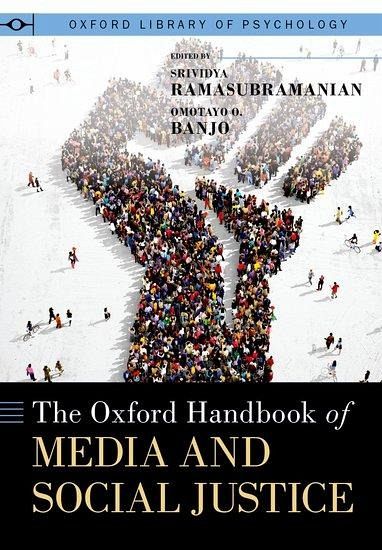
The Oxford Handbook of Media and Social Justice
Versandkostenfrei!
Versandfertig in über 4 Wochen
192,99 €
inkl. MwSt.
Weitere Ausgaben:

PAYBACK Punkte
96 °P sammeln!
This Handbook gathers over forty leading scholars and presents a state-of-the-art systematic overview of media and social justice. The chapters explore intersecting identities, social structures, and power networks within media ownership, representation, selection, uses, effects, networks, and social transformation. Connecting critical media scholarship with intersectional feminism, postcolonial/anticolonial theory, Indigenous approaches, queer theory, diaspora studies, and environmental justice frameworks, the Handbook re-envisions the role of media and technology with an inclusive trauma-inf...
This Handbook gathers over forty leading scholars and presents a state-of-the-art systematic overview of media and social justice. The chapters explore intersecting identities, social structures, and power networks within media ownership, representation, selection, uses, effects, networks, and social transformation. Connecting critical media scholarship with intersectional feminism, postcolonial/anticolonial theory, Indigenous approaches, queer theory, diaspora studies, and environmental justice frameworks, the Handbook re-envisions the role of media and technology with an inclusive trauma-informed approach to scholarship that is essential for the future of this research.













